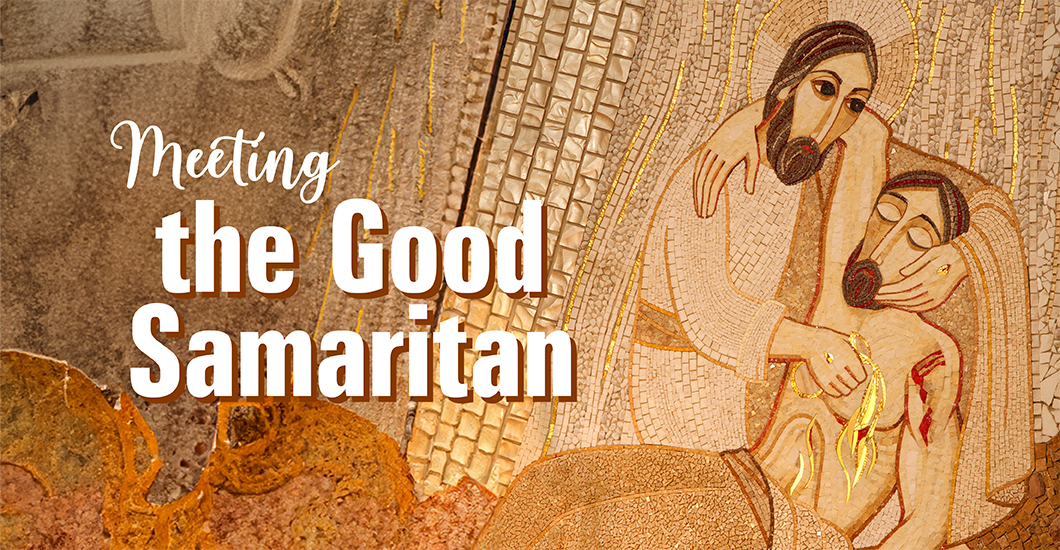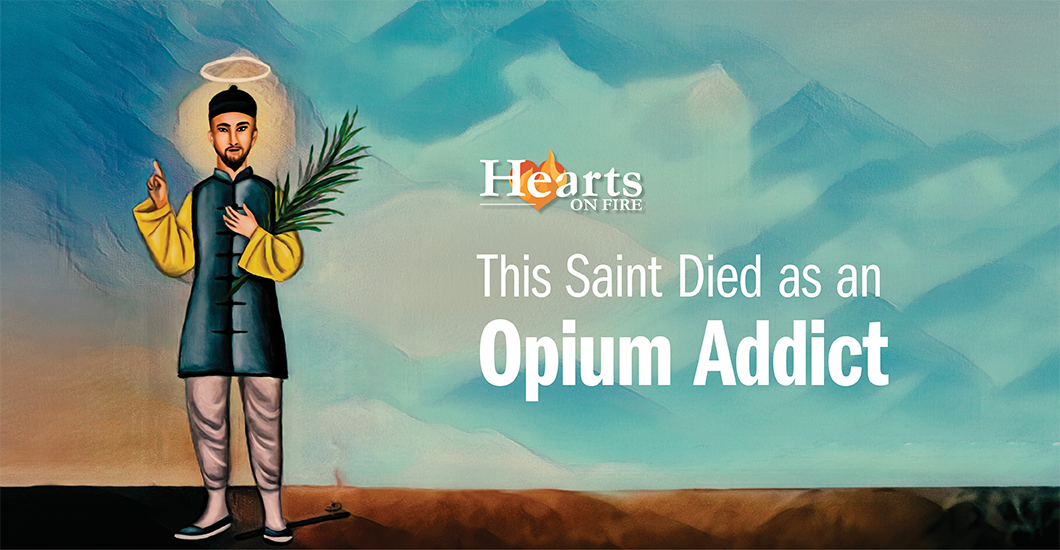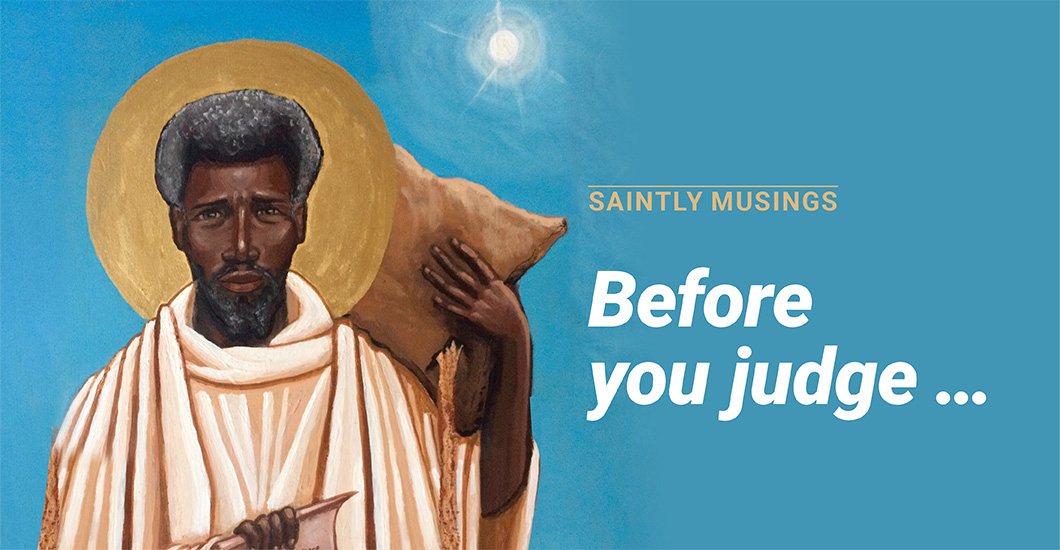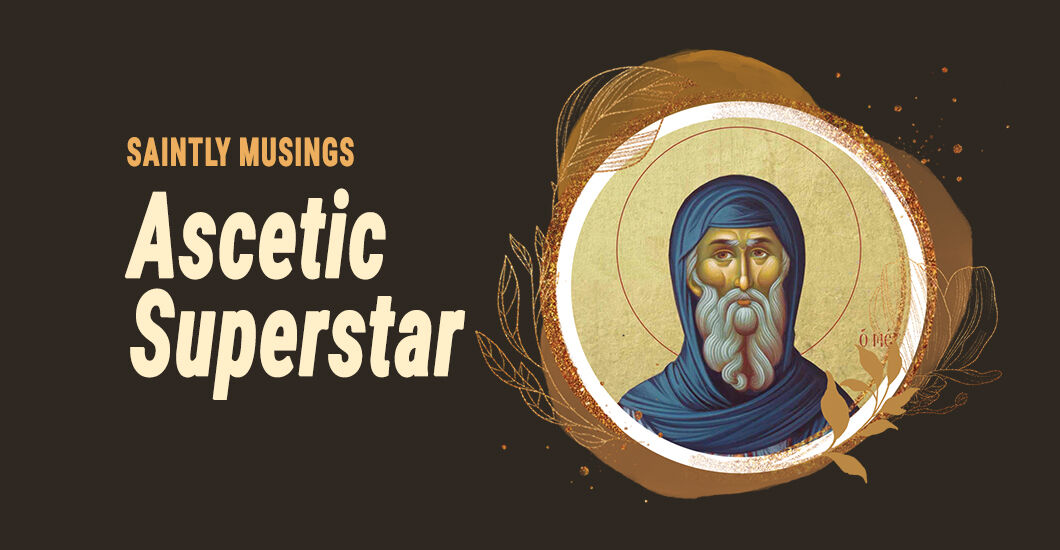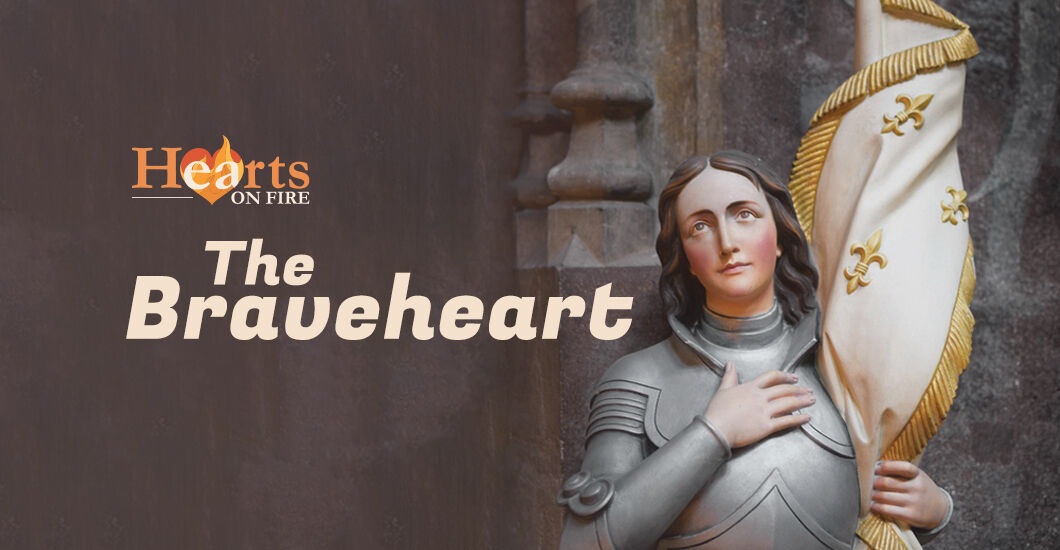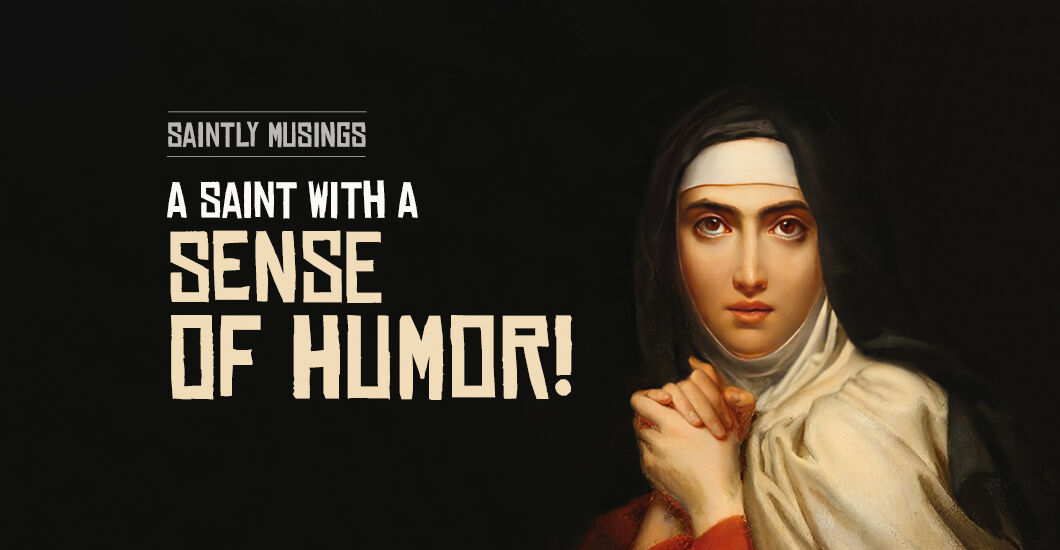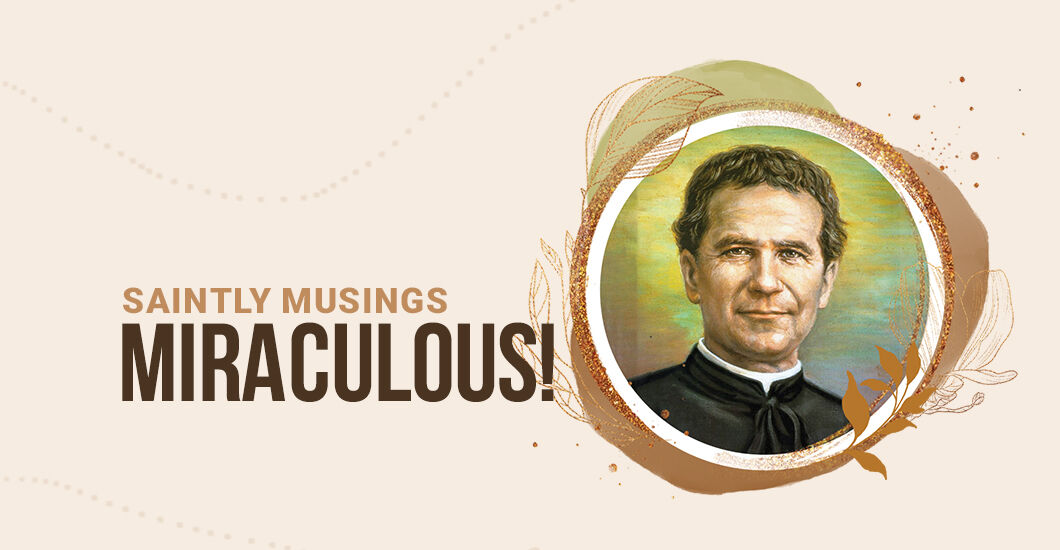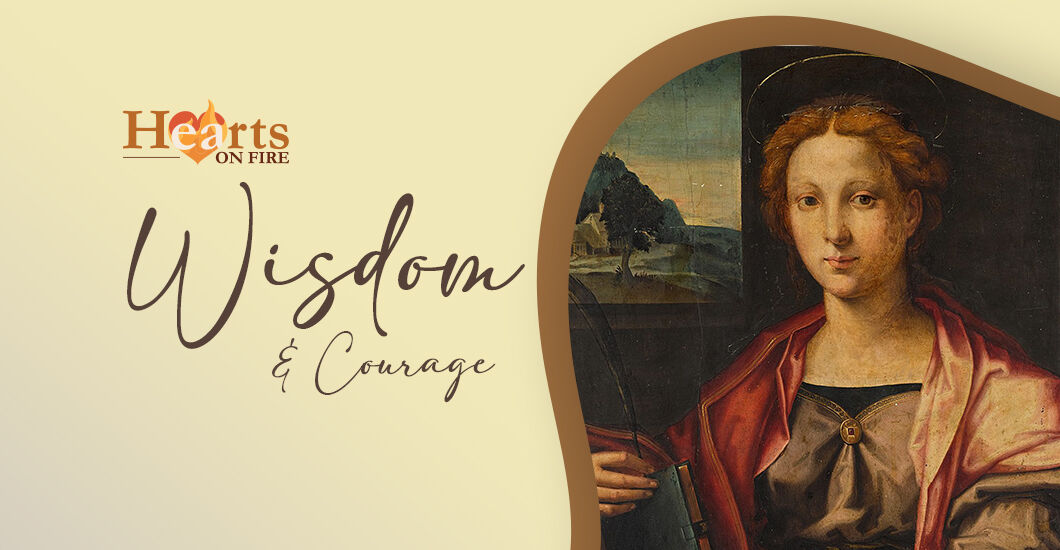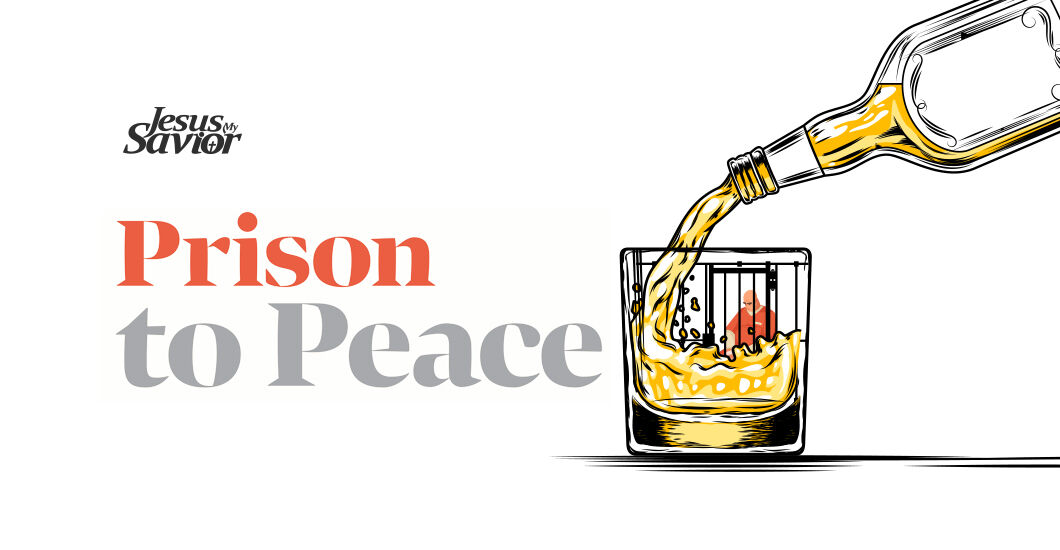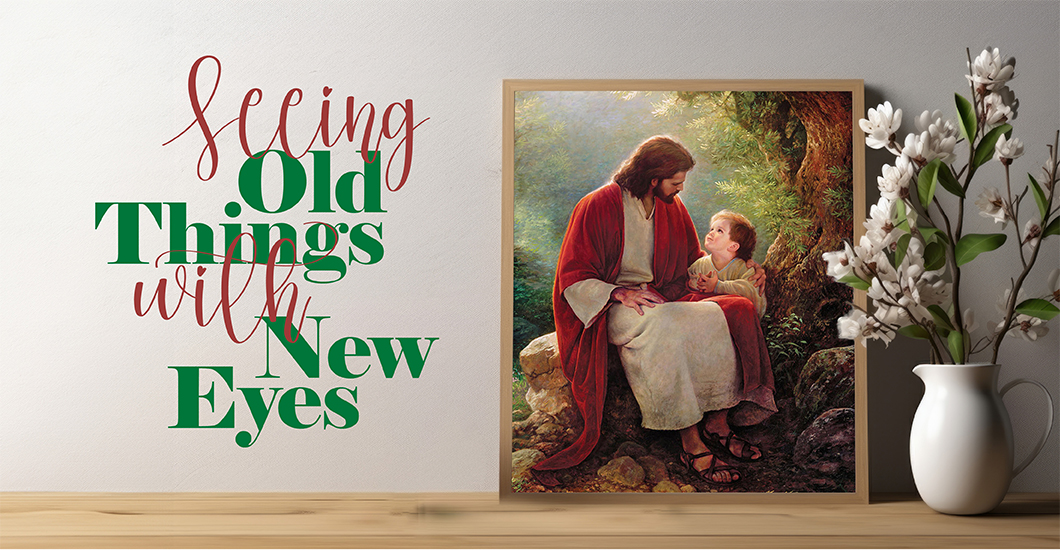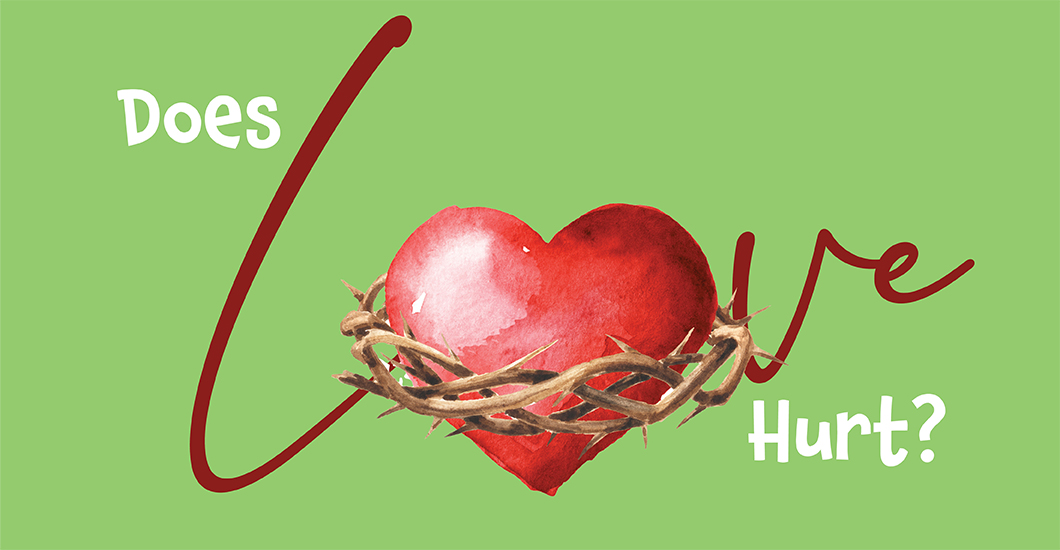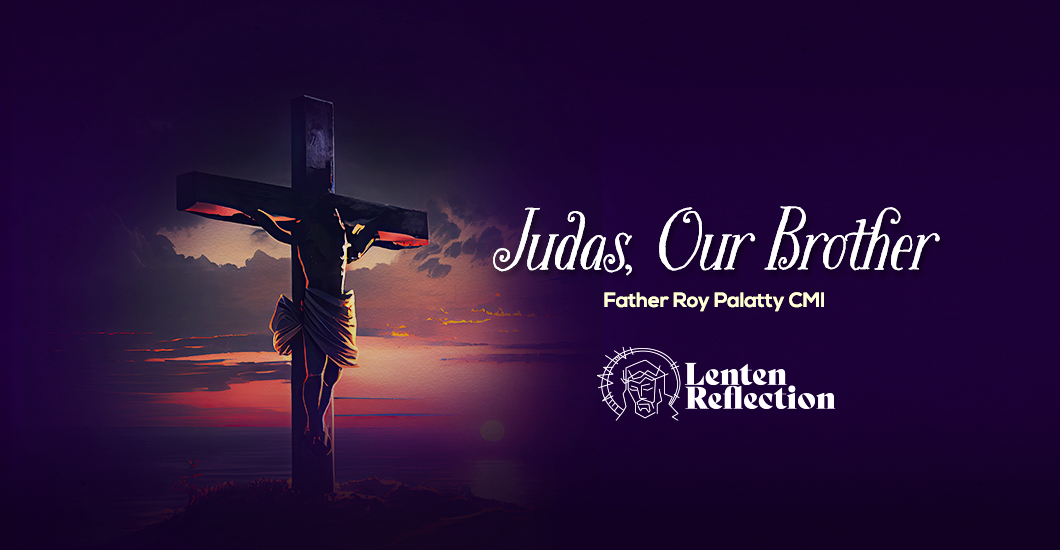Trending Articles
The Face That Freaks out Demons
Do not mess with this face!
The year 2017 marked the 100th anniversary of the apparitions of Mary to three little children in Fatima. The youngest of the three, six-year-old Jacinta, died only a few years later, but spent the remaining time of her life on earth offering sacrifices in reparation for sin. On 13th of May 2017 Pope Francis canonized Jacinta along with her brother Francisco at Fatima.
Saint Jacinta had a fierce, determined spirit and a heart for sinners, especially those furthest from God’s love: those closest to damnation. She had been horrified when Our Lady granted her and the other children a glimpse into hell. It was vivid and heartbreaking, terrifying and cruel.
After this vision of hell, Jacinta would sit on a rock or slump on the ground exclaiming, “Oh, hell! Hell! How sorry I am for the souls who go to hell! And the people down there, burning alive, like wood in the fire!”. She would then drop to her knees and pray the prayer Our Lady had taught them: O my Jesus! Forgive us our sins, save us from the fires of hell. Lead all souls to heaven, especially those in greatest need of Thy mercy.
During a private apparition, Mary had told Jacinta: “most souls end up in hell because of the sins of impurity” and “if people knew what eternity is, they would surely do everything in their power to change their lives …”
Because of this, little Jacinta resolved to help keep as many souls as possible out of hell. This may be the reason why the presence of her photograph has proven to be a deterrent to demons, as one exorcist has attested. They hate being reminded of the many souls she pried from their grip. I think the firm brow in her photographs (though the expression of the day) tells demons that she means business!
To me, she calls us all to step it up: in our own offerings, in showing more gratitude for the gift of receiving Christ in the Eucharist and in making better use of our lives (and time)—after all, she was able to give so much in the short time she had on earth. For this reason, I love sharing stories about this dear Saint with my little ones.
One story I love in particular, related by Sister Lucia, reveals the beauty and wisdom of Saint Jacinta, who is the youngest non-martyr saint:
One morning Jacinta begged Lucia to allow her to accompany her to daily Mass. “Do not come to Mass,” Lucia tried to counsel her, especially as Jacinta had become so ill, “it is too much for you. Besides, today is not Sunday.”
“That does not matter. I want to go in place of the sinners who do not go even on Sundays … Look, Lucia, do you know? Our Lord is so sad and our Lady told us that He must not be offended any more. He is already offended very much and no one pays any attention to it. They keep committing the same sins.”
But Jacinta was told she was not strong enough to attend, so Lucia would drop by and visit her almost every day after she had returned from Mass. Jacinta was always so excited to see her cousin: “Lucia,” she asked, “did you receive Communion today?”
“Yes, Jacinta.”
“Then come very close to me for you have our Lord in your heart. I do not know how it happens but I feel our Lord in you and I understand what He says even if I do not see Him or hear Him. It is so good to be with Him.”
I love the exchange Jacinta had with her cousin after she had been given the news of her impending death directly from Mary:
“Lucia, our Lady told me that I am going to go to another hospital in Lisbon and that I will never see you again or my parents and that after suffering a great deal, I shall die alone. She said that I should not be afraid since She will come to take me with her to heaven.” She sought comfort from Lucia, reaching out her arms and sobbing, “I will never see you again. Pray a lot for me for I am going to die alone.” Jacinta seemed so troubled at the thought of being alone in the end. Lucia once heard her lamenting her fate while hugging a picture of Our Lady, “My dear little Mother, so I am going to die alone?”
“Why do you worry about dying alone?” Lucia had asked her, “What do you care when Our Lady is going to come for you?”
“It is true. I do not care. I do not know why, but sometimes I forget that she is going to come for me.” Lucia’s own heart was filled with sorrow. “Take heart, Jacinta. You have only a little while to wait before you go to heaven. For me …” She was brokenhearted knowing she would be left to live a long life on earth without her little cousin.
“Poor thing. Do not cry, Lucia, I shall pray a lot in heaven for you. You are going to stay here, but it is our Lady who wants it.”
“Jacinta, what are you going to do in heaven?”
“I am going to love Jesus a lot, and the Immaculate Heart of Mary, and pray and pray for you, for the Holy Father, my parents, brothers, sisters and for everyone who asked me and for sinners. I love to suffer for the love of our Lord and our Lady. They love those who suffer for the conversion of sinners.”
What an incredible little soul! At the end of her life, Jacinta endured much suffering. She underwent surgery removing two ribs, in an effort to save her after an infection had caused vast swelling. She told the doctor plainly that she would be dying soon and that the surgery would not make a difference. She accepted it though, as she was determined to offer as much suffering as possible before her death. When it came time for the procedure, she was found to be too weak for the gas anesthetic so was offered only local anesthetic, which proved ineffective. She felt everything and was in complete agony the entire time, but offered it all for sinners.
When I think of her offerings, I am almost embarrassed to think of all the times I have complained about minor inconveniences, so many lost opportunities to give as she gave, to love as she loved. Yet, God is good, and I know I can offer it now and greet future burdens with a determined spirit, with joy and a renewed zeal for souls.
In the end, the prophecy of Jacinta dying alone was fulfilled. As many doctors and family members thought her health was improving, they were not with her the night she died. Her body was exhumed in both 1935 and 1951 and was found to be incorrupt (one among so many in our awesome Catholic faith). She is buried at the Basilica of Our Lady of Fatima in Portugal where Pope Francis and a number of Catholics (all pilgrimages were sold out) celebrated the 100th anniversary and honored the lives of the heroic children of Fatima.
Carissa Douglas is the author and illustrator of the Catholic children’s book series “Little Douglings,” which promotes the sacraments and the culture of life. She is the mother of 14 children. Be sure to check out her site at littledouglings.com where she blogs about her adventurous life with her big Catholic family and shares the humor and joy in her comic series: Holy HappyMess.
Related Articles
On a scorching afternoon on the streets of Calcutta, I met a boy… Prayer is an undeniable, central, and key part of every Christian’s life. However, Jesus emphasized two more things which clearly went hand in hand with prayer—fasting and almsgiving (Matthew 6:1-21). During the seasons of Lent and Advent, we are specifically called to commit more time and effort to all three ascetic practices. ‘More’ is the important word. Whatever season we are in, radical self-denial and giving are a continuous call for each baptized believer. Around eight years ago, God literally made me stop and think about it. Unexpected Meeting In 2015, I had the great privilege and blessing of fulfilling a lifelong dream to be with and serve some of the most in-need brothers and sisters worldwide in Calcutta, India, where the poor are described not only as poor but the ‘poorest of the poor.’ From the moment I landed, it was as though electricity was running through my veins. I felt such immense gratitude and love in my heart to be given this amazing opportunity to serve God with Saint Mother Teresa’s religious order, the Missionaries of Charity. The days were long but absolutely action-packed and grace-filled. Whilst I was there, I did not intend to waste a moment. After a 5 AM start to each day with an hour of prayer, followed by Holy Mass and breakfast, we set off to serve at a home for the sick, destitute, and dying adults. During the break at lunchtime, after a light meal, many of the religious brothers I was staying with took a siesta to recharge their batteries, to be ready to go again in the afternoon and on into the evening. One day, instead of having a rest in the house, I decided to go for a walk to find a local internet café, to contact my family by email. As I turned one of the corners, I encountered a young boy aged around seven or eight years old. His face expressed a mixture of frustration, anger, sadness, hurt, and tiredness. Life had already seemed to have begun to take its toll on him. He was carrying over his shoulder the biggest transparent, heavy-duty plastic bag that I had seen in my life. It contained plastic bottles and other plastic items, and it was full. My heart broke within me as we stood silently examining one another. My thoughts then went to what I could give this young boy. My heart sank, as I reached for my pocket, realizing that I only had a small amount of change with me to use for the internet. It added up to less than one pound in English money. As I gave it to him, looking him in the eye, his whole being seemed to change. He was so lifted and grateful, as his beautiful smile lit up his beautiful face. We shook hands, and he walked on. As I remained standing in that back street of Calcutta, I stood in awe as I knew that the Almighty God had just personally taught me such a powerful life-changing lesson through this encounter. Reaping Blessings I felt God had beautifully taught me in that moment that it is not the actual gift that is important but the disposition, intention, and love from the heart with which a gift is given. Saint Mother Teresa beautifully summed this up saying, “We cannot all do great things, but we can do small things with great love.” Indeed, Saint Paul said, if we give away all we have “but have not love,” we gain nothing (1 Corinthians 13:3). Jesus describes the beauty of giving, that when we “give… it will be given to you; good measure, pressed down, shaken together, running over, will be put into your lap. For the measure you give will be the measure you get back.” (Luke 6:38). Saint Paul also reminds us that “Whatever a man sows, that he will also reap” (Gal 6:7). We do not give in order to receive, but God in His infinite wisdom and goodness blesses us personally in this life and also in the next when we step out in love (John 4:34-38). As Jesus taught us, “it is more blessed to give than to receive” (Acts 20:35).
By: Sean Booth
MoreThe Chinese Boxer Rebellion in the 1900s killed nearly 32,000 Chinese Christians and 200 Western Missionaries. Among these devoted Christians who gave their life for their faith, Saint Mark Ji Tianxiang stands out because, at the time of his death, he was an opium addict who had not received the Sacraments for 30 long years. Ji was raised in a devout Christian family, and he was a respected and charitable doctor in his community. Fate be blamed, the opium he took to abate a disturbing stomach ailment took hold over him, and he was addicted to it in no time. Though he went to frequent Confession, Ji found himself in the grips of a powerful addiction that refused to succumb to any means of resistance. His parish priest and confessor eventually told him that he could not continue to repeat the same sin in Confession anymore. Confession requires a conscious resolve to repent and sin no more, and this repeated sin, in the 19th century, was not understood as an illness. He was henceforth restricted from receiving the Sacraments, but he continued visiting the Church and stayed true to the Lord’s ways. He remained sincere to his faith because He believed in a Merciful Father. Many assumed that he would be the first to deny the Lord when faced with the threat of persecution. But along with his son, grandchildren, and daughters-in-law, he persevered till the very end. In fact, Ji provided spiritual consolation to his fellow Christians as they were imprisoned and awaiting execution. Stories record that as they were dragged to prison, his grandson, shaking with fear, asked him, “Grandpa, where are we going?” He calmly and jubilantly answered: “We’re going home.” He went to his death, singing the Litany of the Blessed Virgin Mary. Pope John Paul II canonized him in the year 2000.
By: Shalom Tidings
MoreEver heard of a robber who turned into a Saint? Moses the Black was a leader of a band of thieves who attacked, robbed, and murdered travelers in the Egyptian desert. The very mention of his name spread terror in people’s hearts. On one occasion, Moses had to hide in a monastery and was so amazed at the way he was treated by the Monks that he converted and became a monk! But the story doesn’t end there. Once, four of the robbers of his former band descended upon the cell of Moses. He had lost none of his great physical strength, so he tied them all up. Throwing them over his shoulder, he brought them to the monastery, where he asked the Elders what to do with them. The Elders ordered that they be set free. The robbers, learning that they had chanced upon their former ringleader and that he had dealt kindly with them, followed his example: they repented and became monks. Later, when the rest of the band of robbers heard about the repentance of Moses, they also gave up their thievery and became fervent monks. After many years of monastic struggles, Moses was ordained deacon. For another fifteen years, he continued his monastic labors. About 75 disciples gathered around the saintly Elder, who had been granted the gifts of wisdom, foresight, and power over demons by the Lord. Once, a certain brother committed an offense in Scete, the camp of the monks. When a congregation was assembled to decide on this matter, they sent for Abba Moses, but he refused to come. Then they sent the priest of the church to him, imploring, “Come, for all the people are expecting you,” and finally, he responded to their pleas. Taking a basket with a hole in it, he filled it with sand and carried it upon his shoulders. Those who went out to meet him asked, “What does this mean, O Father?” And he replied, “The sands are my sins, which are running down behind me, and I cannot see them. Yet, I have come here today to judge shortcomings that are not mine.” When they heard this, they set that brother free and said nothing further to him.
By: Shalom Tidings
MoreAt the age of 20, Anthony lost his parents and was left with a large inheritance and the responsibility of caring for his sister. About the same time, Anthony happened to hear a reading from the Gospel of Matthew, where Jesus tells a rich young man, "If you want to be perfect, go and sell everything you have and give the money to the poor." Anthony believed he was that rich young man. Shortly after, he gave away most of his property, sold almost everything else, and kept only what he needed to care for himself and his sister. But that’s not exactly what the Lord had commanded! Not long afterward, Anthony was at Mass once again and heard the Gospel passage, “Do not worry about tomorrow; tomorrow will take care of itself” (Matthew 6:34). Again, he knew Jesus was speaking directly to him, so he gave away even the little he had saved, entrusted his sister to the care of some holy women, and entered the desert to live a life of poverty, solitude, prayer, and mortification. In that harsh desert landscape, the devil attacked him in countless ways saying “Think about all the good you could have done with that money you gave away!” Firm in prayer and mortification, Anthony fought off the devil and his manifestations. Many were attracted to his wisdom, and these he encouraged to seek self-denial and the hermetic life. No wonder after his death he became Saint Anthony the Great or Saint Anthony of the Desert, the father of Christian Monasticism. Once a brother renounced the world and gave his goods to the poor, but he kept back a little for his personal expenses. He went to see Abba Antony. When he told him this, the old man said to him, "If you want to be a monk, go into the village, buy some meat, cover your naked body with it and come here like that." The brother did so, and the dogs and birds tore at his flesh. When he came back the old man asked him whether he had followed his advice. He showed him his wounded body, and Saint Antony said, "Those who renounce the world but want to keep something for themselves are torn in this way by the demons who make war on them."
By: Shalom Tidings
MoreFew Saints of the Catholic Church have captured the popular imagination like Joan of Arc. Her story is depicted in paintings, sculptures, and numerous films. Born into a peasant family in 1412, Joan grew up illiterate, but acquired a profound love for the Church and a deep faith in God from her mother. Because she loved prayer and the sacraments, her neighbors said, “She was so good that all the village loved her.” She cared for the sick and homeless, often even giving them her own bed. By the age of thirteen, Joan began to hear the voices of Michael the Archangel, Saint Margaret of Antioch, and Saint Catherine of Alexandria. They told her she was to liberate France and ensure the French heir to the throne was installed as France’s rightful king. She won his trust by telling him details of his past only someone with divine knowledge could know. At the time, France was dominated and ruled by England. Convinced that her “voices” came from God, Joan heroically and faithfully obeyed their instruction, despite obstacles and suffering. Prayer and contemplation remained primary in her life even as she led battles, during which she never raised the sword against an enemy Though two years earlier a commission had “declared her to be of irreproachable life, a good Christian, possessed of the virtues of humility, honesty and simplicity”, Joan was accused of witchcraft and heresy after the English captured her, receiving no support from the very King she put on the throne. At her trial, Joan manifested her deep faith and wisdom, and despite being wrongly condemned, she never lost her faith in God or the Church. When she was burned at the stake, she proclaimed the name of Jesus while holding a crucifix to her heart, causing an observer to say, “We have burned a saint.” Her death increased her fame and popularity. Twenty years later, a new trial declared her innocent of all her alleged crimes. After her reputation grew over the centuries to epic proportions, Joan was beatified in 1910 by Pope Pius X and canonized eleven years later by Pope Benedict XV. She is now the patron Saint of France and one of the Church’s most beloved Saints. Joan’s obedience to God ensured France kept the Catholic faith during the Protestant Reformation while England abandoned it. France remained a solid center of Catholicism from which it would spread to northern Europe.
By: Shalom Tidings
MoreThe river had swelled so high that water covered everything and all sense of where the road or footpath might be was purely a guess. With water everywhere, it seemed foolish to advance, especially in a carriage, for if anyone strayed ever so little off the road, they would perish without a doubt. As her companions panicked, Sister Teresa encouraged them, “As we are engaged in God’s work, how could we die in a better cause?” She then led the way on foot to the convent through the fierce storm. Suddenly she slipped down an embankment and fell squarely into the mud. Instead of complaining or cursing, the irrepressible nun, looked to the sky and quipped, “If this is how you treat your friends, no wonder you don’t have many!” The sixteenth-century Saint and Doctor of the Church, Teresa of Avila, didn’t take herself or this world too seriously and brushed off the little hardships of life with a sense of humor. Her ability to humbly recognize her own faults and need for grace was also tinged with her refreshing humor. In her autobiography, Teresa writes, “Having virtuous and God-fearing parents would have been enough for me to be good if I were not so wicked.” Saint Teresa was also mindful of false piety and once said, “From silly devotions and sour-faced saints, good Lord, deliver us!” A healthy and good sense of humor will keep our head straight and enable us to see the world’s true beauty. Did God say that we need to be “sour-faced” to be holy? So, if you want to become a saint, lighten up, share the joy of the Lord and laugh with your friends like Jesus did.
By: Shalom Tidings
MoreMaria Stardero, a 12-year-old girl, was led by her aunt into the church where dozens of boys were standing about or kneeling in prayer as they waited for Don Bosco to arrive for confessions. As she made her way to a pew, some of the boys noticed that the young girl’s eyes had no corneas and resembled white marbles. When Don Bosco arrived, he asked the girl about her condition. She had not been born blind, she told him, but because of eye disease she had completely lost her sight two years earlier. When he inquired about medical treatment, her aunt began to sob. They had tried everything, but doctors had only one thing to say: “It is incurable!” “Can you tell whether things are big or small?” Don Bosco asked the child. “I can’t see anything.” He led her to a window to see if she could perceive light, but she couldn’t. “Would you like to see?” Don Bosco asked. “Oh, yes! It’s the only thing I want,” said the girl, breaking down in tears. “Will you use your eyes for the good of your soul and not to offend God?” “I promise I will, with all my heart!” “Good,” said Don Bosco. “You will regain your sight.” After recourse to Mary, Help of Christians, Don Bosco recited the Hail Mary and blessed the girl. Then holding a medal of Mary Help of Christians before the girl’s eyes he asked, “For the glory of God and the Blessed Virgin, tell me what I’m holding in my hand.” “She can’t . . .” the elderly aunt began, but Don Bosco paid no heed. After a few seconds, the child shouted, “I see!” Immediately she described the medal in great detail. But when she stretched out her hand to receive it, it rolled into a dark corner. The aunt moved to retrieve it, but Don Bosco motioned her back. “Let her find it to see if the Blessed Virgin has thoroughly restored her sight,” he insisted. Immediately, the girl walked to the dark corner and bent down to retrieve the tiny object. As the many witnesses looked on, awed and profoundly moved, Maria, thanked Don Bosco profusely and with sobs of great joy. Entrust everything to Jesus in the Blessed Sacrament and to Mary, Help of Christians and you will see what miracles are! Saint John Bosco
By: Shalom Tidings
MoreVenerated as one of the fourteen Holy Helpers (intercessors invoked especially against diseases) Saint Catherine of Alexandria is a virgin martyr of the late third century and early fourth centuries. Though there are no primary sources that attest to her life, there are many traditions about her kept alive over the centuries, including the fact that Joan of Arc claimed hers as one of the voices that spoke to her. Born around 287 in Alexandria, Egypt, a cultural and educational center of the ancient world, she was of the noble class and a very gifted student. She embraced Christianity at age 14 after seeing a vision of Jesus and His blessed mother. A precocious young woman, she didn’t hesitate at the age of 18 to challenge the emperor Maxentius when he began to cruelly persecute the Christian community. The emperor was so impressed by her wisdom that, rather than execute Catherine, he ordered her to debate his best philosophers, whom she easily bested. In fact, the philosophers were so taken by her wisdom, that they and some 200 soldiers embraced the faith. Sadly, all were immediately martyred. Frustrated by Catherine’s amazing resilience, the emperor ordered that she be jailed and tortured. But even her brutal scourging did not cause Catherine to give up her faith. So, the emperor tried a novel approach: he offered to marry her and make her an empress. Already wedded to Christ and having dedicated her virginity to him, Catherine refused the emperor. Enraged, the emperor ordered that she be executed on a spiked wheel, an especially brutal means of torture. But when Catherine touched the wheel, it miraculously shattered. Finally, the emperor commanded she be beheaded. Especially popular during the medieval period, devotion to Catherine spread during the crusades and she has remained popular in both the Roman Catholic and Orthodox churches. Celebrated in much renaissance art, Catherine is the patroness of students and teachers, librarians, and lawyers. Her feast is celebrated on November 25. May her courage and her wisdom in accepting death rather than abandoning her faith in Christ inspire us and give us hope. Saint Catherine of Alexandria, pray for us.
By: Shalom Tidings
MoreAt Mass one day, after distributing Holy Communion, Saint Philip Neri saw a man leave the church just moments after he had received the Eucharist. The man seemed to lack awareness of the Real Presence of Jesus in the consecrated host he had just received. The good priest felt he had to do something to help the man understand how disrespectful his action was, so he quickly asked two altar boys to take their lighted candles and follow the man through the streets of Rome. Soon, the man realized the altar boys were following him. Puzzled, he returned to the church to ask Fr. Neri about it. Saint Philip told the man, “We must pay proper respect to Our Lord, whom you are carrying away with you. Since you neglected to adore Him, I sent two acolytes to take your place.” The man was deeply touched by these words, and resolved to be more aware of Jesus’ presence in his heart after each Holy Communion. Our Lord Jesus is truly and substantially present in the Eucharist, and the minutes following Communion are ‘golden moments’ when we can have a heartfelt conversation with Him. He is present in our souls to listen to our every petition, carry our every burden, and bestow every grace we need. Let us be mindful of His loving presence, and spend at least a few minutes in thanksgiving and adoration after each Holy Communion.
By: Shalom Tidings
MoreAs a young drug addict, Jim Wahlberg felt despised and forgotten by the world…until God spoke to him through a special person! Read his inspiring story of redemption I grew up Catholic, but more in the Catholic tradition than the Catholic faith. I was baptized and made my first Holy Communion. My parents sent us to church, but we didn’t go to Sunday Mass as a family. There were 9 children in my family, so anybody who was old enough to walk to church, walked to church. I remember the feeling of not belonging: the few times I went to church I would take the bulletin, and then go off to do something else. Then I stopped going altogether. Most of my siblings did the same. Nobody ever told me that Jesus died for me or that God loved me or that the Virgin Mary would intercede on my behalf. I felt I wasn’t worthy, that the people in the pews were better than me and that they were somehow judging me. I was starving for attention and acceptance. Chasing Acceptance When I was 8 years old, I saw the neighborhood kids drinking beer. I forced myself into their little group and convinced them to give me some. I didn’t become an alcoholic that day, but I got my first taste of acceptance and attention from the older, ‘cool’ kids. I was instantly hooked on the attention and continued to hang around the people that were drinking, doing drugs or smoking, because I found acceptance there. I spent the rest of my adolescence chasing that attention. I grew up during the forced integration of the Boston public school system, so every year I was put on a bus and sent to school in a different neighborhood. I attended seven different schools during my first seven years of grade school, which meant each year I started over as “the new kid”. God was completely out of the picture. The only relationship I had with God was one of fear. I remember hearing over and over that God was going to get me, that He was watching, and that He was going to punish me for all the bad things I was doing. A Lost Little Boy On the Friday night of my last day of 7th grade, I was getting ready to go out when my dad turned to me and said, “Don’t forget, when those streetlights come on, you better be in this house, or else don’t bother to come home.” That was his threat to make sure I followed the rules. I was a 12-year-old boy hanging out with other 12-year-old kids that were all from broken homes. We were all drinking beer, smoking cigarettes, and doing drugs. Later that night, when I looked up and saw the streetlights come on, I knew I wasn’t going to make it home. Since I would be late, going home wasn’t an option, so I spent that entire summer down the street, a mile or two away from home, hanging out with my friends. We did drugs and drank alcohol every day. I was just a lost little boy. During that summer, I was arrested a few times and became a ward of the state. It was not long before I was no longer welcome at home. I was placed in foster care, group homes and juvenile detention centers. I was homeless and completely lost and alone. The only thing that filled the emptiness was the alcohol and drugs. I would consume them, and then pass out or go to sleep. When I woke up, I would be filled with fear, and I would need more drugs and alcohol. From age 12 to 17, I was either homeless, or living in someone else’s home, or in juvenile detention. Shackled and Broken At 17 I got arrested again for injuring someone. I ended up being sent to the state prison on a 3-to- 5-year sentence. I found myself fighting the same inner battle as when I was younger, struggling for attention and acceptance, trying to create an illusion. I served the full five years of my sentence. At the end of the prison term, they said I could go home, but the problem was I had no home to go to. An older brother was kind enough to say, “You can stay with me until you get on your feet.” But that would never happen. My brother picked me up at the prison to take me to see my mom. But first we stopped for a drink at a bar in my old neighborhood. I had to have a drink, before I could see my mom. It was my first legal drink, since I was now over 21. When I sat at my mother’s kitchen table, she didn’t recognize me as her child; she felt I was stranger. I had been out of prison for approximately six months before I was arrested again for house invasion. The house I broke into belonged to a Boston police officer. In court, the officer spoke on my behalf. He said, “Look at this kid, look at his condition. Why don’t you get him help? I don’t know if prison is the right place for him.” He showed me sympathy because he could see I was a full-blown drug addict. Suddenly I was back in prison serving a six-year sentence. I did all I could to create the illusion that I was changing my life so the police would release me early to rehabilitation. But I didn’t need rehabilitation—I needed God. The Road to Freedom After a few months of putting on this show of transforming my life, the prison chaplain, Father James, took notice of me and offered me a job as a custodian in his chapel. My first thought was, “I’m going to manipulate this guy”. He smoked cigarettes, drank coffee, had a phone—all things that inmates don’t have access to. So, I took the job, ulterior motives and all. But what I didn’t know was that he also had a plan. When he approached me, his goal was to hustle me just as much as I was planning to hustle him. But his manipulation was for the glory of God. He wanted to get me back to Mass, back to the foot of the Cross. Soon after I started working in the chapel, I asked for a couple favors from Father James. When he granted my requests, it felt like my manipulation was working. One day, however, he approached me and told me he wanted me to come and clean after the Saturday Vigil Mass so that the chapel would be ready for Sunday Mass. When I offered to come after Mass, he insisted I come beforehand and stay through the Mass. He was already pushing me in the direction of faith. A Divine Appointment At the Mass, I felt awkward and uncomfortable. I didn’t know the prayers or when to sit or stand, so I watched what everyone else was doing to get by. Soon after, Father James officially hired me for the custodian job, and told me we would be having a special guest at the prison, “Mother Teresa.” I said, “Oh that’s amazing! Who is Mother Teresa?” Looking back, I probably didn’t even know who the President of the United States was at the time; my life revolved solely around consuming alcohol, and I rarely concerned myself with people and events outside my bubble of addiction. Soon, Mother Teresa arrived at our prison. I remember seeing her in the distance and thinking, “Who is this person that all of the dignitaries, the warden, and the prisoners are swarming around, hanging on her every word?” Pulling closer, I noticed that her sweater and shoes looked a thousand years old. But I also noticed the peace in her eyes, and the money that filled her pockets. People often gave her money knowing she would give it to the poor.Since I worked at the chapel, I was blessed to be part of the entrance procession for the Mass with Mother Teresa. Prisoner that I was, I stood surrounded by the Cardinal, other dignitaries, and sisters from her order. The Cardinal invited Mother Teresa to sit at the altar with him, but she humbly declined, and with a reverent bow, went and knelt on the floor with some of the most dangerous criminals that I had ever met in my life. Gazing Into God’s Eyes As I sat on the floor, I caught her eye and I felt as though I was looking at God. Mother Teresa then ascended the altar steps and spoke words that touched me deeply, words that I had never heard before. She said that Jesus died for my sins, that I was more than the crimes I had committed, that I was a child of God, and that I mattered to God. In that moment, in that stillness, I felt as though there was no one else in the room, as though she was speaking directly to me. Her words reached a deep part of my soul. I ran back to the chapel the next day and told Father, “I need to know more about the Jesus that she was talking about, the God and the Catholic faith that she was talking about.” Father James was delighted! He had me right at the foot of the Cross where he had wanted me ever since he offered me the custodian job. I was willing to do anything to learn more about Jesus, so Father James started preparing me for my Confirmation. We met every week, studying the Catechism to learn about the faith. Though I was twice transferred to other prisons, I connected with the priests in those prisons as well, and was able to continue growing in my faith. A New Beginning A year later, it was time for me to make my formal commitment to my faith. My Confirmation was a thoughtful and intentional moment in my life. As an adult, I knew this was a major step that would set me on the road to a deeper relationship with Jesus Christ When the time came, I called my mom to tell her I was going to be confirmed, and that I would love for her to be there. She had promised she would never visit me in prison, so she was wary. After all that I had put her through, she was wounded as a mother. But when I called again a couple of days later, she agreed to come. The Confirmation day was monumental. It was not only significant for me and my walk with Christ, but also for my relationship with my mother. The following year, it was time for me to stand before the parole board. They said they had a letter from my mother she had written on my behalf. I knew my mother would never lie to the authorities to get me out of prison. Her letter read, “Before you stands a man of God. It’s okay, you can let him go now. He won’t be back.” Those words meant everything to me. By the time my mother passed away, she had dementia. Over the years she had lost her ability to tell stories and her world became small. But even in those moments when she was most in the grip of dementia, she was able to recall my Confirmation, the moment when she knew I was saved. Jesus Christ is my Savior, and I feel His presence in my life. While it requires work and effort, my relationship with Jesus is the most important one in my life. He will always love me and support me, but unless I fully engage in the relationship, I won’t know the comfort and love He longs to share with me. It is an honor to share my journey. Jesus Christ is our Savior.
By: Jim Wahlberg
MoreLatest Articles
When a terrible loss led Josh Blakesley into the light, music from his soul became a balm to many bleeding hearts. Growing up in the small town of Alexandria, Josh was a carefree child. He grew up listening to his Dad’s music; two elder sisters with a great music collection was a bonus that nurtured his musical taste. Without professional training or theoretical inputs, in an age with no internet and YouTube, Josh had what he would later call ‘a side entry’ into the world of music. Starting on the drums and simultaneously learning to sing, he was enamored by the likes of Don Henley and Phil Collins, following their legendary works through magazines and books. With his mother, though, Church was a non-negotiable matter. Thanks to her insistence, he went to Mass every Sunday. But he would leave God there and live the rest of his life on a totally different plane. Diving Deeper They met in Spanish class when he was 15, and unlike any other 15-year-old, she took him along to a prayer meeting. This was new and different from anything he had experienced before. Teenagers his age were coming together to worship the Lord. This worship experience was modern and engaging…with music, talks, and skits by people his age! He was intrigued, but he wouldn’t have kept coming back every week if Jenny hadn’t asked him to. Several months later, Jenny was hit by a drunk driver and killed in an accident. Her loss was a huge blow to the entire community. As he struggled with the grief of losing her, it triggered a realization that life here is finite, and there must be purpose in it, a reason that we are living. From that very moment, he began a journey, searching for answers to the questions that fascinated him…‘What is the reason for me? What is the purpose of what I’m doing right now? Why has God put me on this planet? What’s my role while I’m here?’ He started diving more into why we were here on this planet. In realizing that his gifts were from God, and in searching for a purpose in the use of these gifts, he realized that he wanted to give back to God and return the love. A Bolt of Realization He started playing music for Mass and getting involved in the liturgy. As he puts it: “There has been a faith part to my music and a music part to my faith as well. Those are still ingrained. I pray through music a lot”. And it is this experience of prayer that he tries to hand over to his brethren through writing and playing music. The “awesome and overwhelming” experience of leading people into worship and hearing them singing along makes him whisper so often: “The Lord is moving right now, and I don’t have to work.” Bridging the Gap Josh is now a full-time singer, songwriter, producer, music director, husband, and dad. Even while leading the music at Mass every Sunday, Josh knows that Mass can happen without music—what a musician does at Mass doesn’t bring Jesus any greater into the room; He is there regardless. What a musician can do is “elevate the worship of the faithful by bringing some extra beauty through music.” This indeed, is one of his life goals—to try and bridge that gap and bring quality music into the liturgy. But he doesn’t stop there; in addition to adding beauty to the Sacramental experience, he goes another mile to bring God to the people. Right from His Heart As a Catholic musician, Josh writes songs for the Mass and writes from the heart. Sometimes, when it comes out, it might not be out rightly Mass-material, but what comes out is still a tribute to God for the gift of music. He relates that his song Even in This was such an experience right from his heart. The Church community he was part of had just lost a teen, and seeing them go through the pain, the tragedy, and the devastation took him back to his own experience of losing a dear friend in his teenage years. Diving into the pain, he wrote that even in these darkest nights, God is with us. In the ‘valleys of pain’, in the ‘shattered, broken things’, in the ' hurt you cannot hide’ and the ‘fear you cannot fight’, he reassures his listeners that though you cannot see God, “You are not alone.” This is one message Josh wants to repeat to the world: “God is moving with you.”
By: Josh Blakesley
MoreA familiar picture, a routine job, but that day, something different caught her eye. On the corner of my bathroom vanity is an old photocopy of a drawing (original source long forgotten) in a clear, plastic frame. Years ago, one of my now adult sons had carefully framed it and set it on his dresser. It sat there until he grew up. When I re-homed, I transferred it to the corner of my bathroom vanity. On Saturdays, when I clean the bathrooms, I always lift the little frame and wipe the surfaces beneath it. Occasionally, I’ll swipe my cloth over the smooth sides of the frame to wash away any settled dust and invisible germs. But, like so many other familiar things, I rarely take notice of the image inside the old childish frame. One particular day, though, this picture caught me by surprise. I eagerly focused on the eyes of the two figures in the image—a child and Jesus. The expression on the little child’s face was one of loving adoration. The innocence of child-like wonder and unrestrained admiration resonated in his soft, penciled eyes. The child’s tender, upward gaze seemed not to notice the horror of the crown of thorns atop Christ’s head or the Cross crushing His right shoulder. In contrast, Jesus’s eyes peered down from beneath heavy lids and shadowed creases. The artist had managed to skilfully veil the depth of pain behind those eyes. Drawing Parallels I recalled a memory from my early years as a mother. I was big with baby number three. In the last days of pregnancy, I was attempting to soothe my aching body with a warm bath. I bounded my two young sons. They were full of energy and chatter as they moved around the tub and peppered me with questions. My privacy and physical discomfort were of no consequence to their boyish minds. I remembered the tears that rolled down my face as I tried, in vain, to get my sons to understand that I was hurting and in need of some space. But, they were simply little children who saw me as their ever-present mama, the one who kissed away boo-boos and always stood at the ready to hear their stories and meet their needs. They lacked understanding of the physical sacrifices that child-bearing demands. And I was too familiar to be seen by them as someone other than their strong, steadfast mother. I considered the parallels. Like my little boys, the pictured child saw Our Lord through his individual, human lens of experiences. He saw a loving Teacher, a faithful Friend, and a steadfast Guide. Christ obscured the intensity of His Passion—out of mercy and met the child’s gaze with tenderness and compassion. The Lord knew that the child was not ready to see the full measure of the suffering that his salvation had cost. Lost in the Darkness Our familiarity with things, people, and situations can make us blind to reality. We most often see through the clouded tunnel of old experiences and expectations. With so many stimuli competing for our attention, it is reasonable that we filter out the world around us. But, like the child in the picture and my own little ones, we tend to see what we want to see and ignore that which does not correspond with our perspectives. I believe that Jesus wants to heal our blindness. Like the blind man in the Bible who, on being touched by Jesus, said: “I see men, but they look like trees, walking” (Mark 8:22-26), most of us are not ready to see the ordinary with divine eyes immediately. Our eyes are still too accustomed to the darkness of sin, too attached to our self-reliance, too complacent in our worship, and too proud of our human endeavors. The Full Picture The price paid for our salvation on Calvary was not an easy price. It was sacrificial. Yet, like the child in the picture on my bathroom vanity, we focus only on Jesus’s tenderness and mercy. And because He is merciful, Jesus doesn’t rush; He allows us to come to a gradual maturity of faith. However, it is good to ask ourselves every once in a while if we sincerely render efforts towards spiritual maturity. Christ did not give His life so that we might remain in the fantasy world of continued blessings. He gave His life so that we might have eternal life, and we need to open our eyes to see that He bought it at the price of His blood. As we journey through Lent and especially Holy Week, we need to allow Christ to open our eyes little by little, surrender ourselves to His will, allow Him to remove our idols one by one, and strip away that which has become familiar in our lives so that we may begin to see the old blessings of worship, family, and holiness with new eyes of deep, abiding faith.
By: Tara K. E. Brelinsky
MoreI remember a time in my ministry when I had felt a fellow minister distancing himself from me for no apparent reason. It seemed like he was struggling, but he wouldn’t share it with me. One Lenten day, burdened by this thought, I stood in my office and cried out to the Lord in my heart: “Jesus, I feel so left out of this person’s life.” Immediately, I heard Jesus respond with these sad words: “I know how you feel. It happens to Me every day.” Wow! I felt my own heart pierced, and tears flooded my eyes. I knew these words were a treasure. I continued for months to unpack that grace. Since my Baptism in the Holy Spirit twenty years ago, I had considered myself to have a deep personal relationship with Jesus. But this Word from my precious Savior and Lord opened a whole new insight into Jesus’ Heart. “Yes, Jesus, so many people forget You, don’t they? And me too—how often am I going about my tasks, forgetting to bring my problems and thoughts to You? All the while, You wait for me to turn back to You, who looks on me with such love.” In my prayer, I kept processing those words. “I know better now how You feel when someone rejects You, accuses or blames You, or does not talk to You for days or even years.” I would more consciously take my own sorrows to Jesus and tell Him: “Jesus, my Beloved, You feel this same sadness that I am feeling. I offer my little hurt to console You for so many people, including myself, who fail to console You.” I saw in a new way my favorite image, Jesus with His Sacred Heart’s rays of love flowing out, lamenting to Saint Margaret Mary: “Look at My Heart that loves people so much—but receives so little love in return.” Truly, Jesus gives me little trials daily so I can have a tiny taste of what He endured for us. I will always remember that moment of agony that brought me closer to the amazing, tender, long-suffering love of our dear Lord Jesus.
By: Sister Jane M. Abeln SMIC
MoreFather Primo Mazzolari was one of the great public figures of mid-twentieth century Italy. His homily on Holy Thursday in 1958, a year before his death, which he titled “Our Brother Judas” is well-known. At the heart of the homily are the words of Jesus upon Judas’ arrival at the Garden of Gethsemane: “Friend, do what you have come for” (Matthew 26:50). “Friend” was what Jesus addressed him as at their last encounter. Even after his betrayal, Jesus expressed love, mercy, and even friendship towards this betrayer. This was an invitation to examine the inner life of Judas. We don’t know if even that tender word penetrated his heart. But we know one thing: Judas must have remembered that powerful and lovely word ‘friend’ at the moment when he hung himself on the tree. ‘O Judas, my friend…!’ Still, we are sure when Jesus prayed from the Cross, “Father, forgive them, for they know not what they do,” he certainly did not exclude Judas from those he prayed for. It is true that Jesus had predicted about Judas, “none of them was lost except the son of destruction” (John 17: 12). Another terrifying statement about Judas: “It would be better for that man if he had never been born” (Mark 14:21). But, as in many other instances, he had spoken from the perspective of time and not of eternity. The eternal destiny of a human being is an inviolable secret kept by God. “We may betray Christ’s friendship, but Christ will never betray us, his friends; even when we don’t deserve it, even when we turn against him. Even when we deny him, in his eyes and in his heart, we are always friends of the Lord…. Poor Judas. Our poor brother. The greatest sin is not to sell Christ; it is to despair” (Primo Mazzolari). We cannot pass a hasty judgment on him. The betrayal of Judas continues throughout history. Judas sold the Head, while his imitators continue to sell the Body, the members of the Body of Christ. Judas’ betrayal continues through the lives of each of us when we fail to confess our sins.
By: Father Roy Palatty CMI
More
